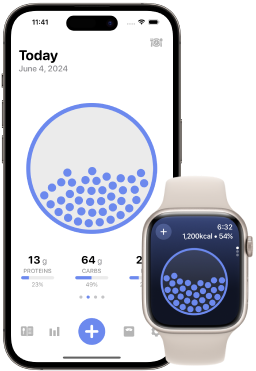
How Long Does It Take To Lose Weight?
Understanding Weight Loss Timelines
Weight loss occurs when you burn more calories than you consume, this is known as a calorie deficit. The commonly accepted rule is that a deficit of 3,500 calories results in about 1 pound (0.45 kg) of weight loss. Based on this, most experts recommend aiming to lose 1 to 2 pounds per week, which is considered both safe and sustainable. Following this guideline, you can estimate your weight loss timeline:Factors That Influence Weight Loss Speed

Starting Weight and Body Composition
Your starting weight plays a major role in how quickly you lose pounds. People with a higher body fat percentage tend to lose weight faster initially because their bodies burn fat more efficiently when creating a calorie deficit. Meanwhile, individuals with a lower body fat percentage might experience slower progress. Muscle mass also impacts weight loss—since muscle burns more calories than fat, those with higher muscle mass generally have a faster metabolism, helping them lose weight more effectively.
Dietary Choices and Caloric Intake
The quality and quantity of the food you consume directly impact how quickly you lose weight. A diet high in processed foods, sugar, and unhealthy fats can make it harder to maintain a calorie deficit and may lead to weight gain instead of loss. On the other hand, focusing on a balanced diet rich in protein, fiber, and healthy fats helps regulate hunger, keeps you full longer, and supports steady weight loss. Nutrient-dense foods such as lean meats, vegetables, whole grains, and healthy fats provide the essential nutrients needed for sustainable fat loss without compromising overall health.
Physical Activity and Exercise
Exercise plays a significant role in weight loss, as it helps burn calories and build muscle. Cardio exercises like running, cycling, and swimming are effective for burning calories quickly, while strength training helps build lean muscle mass, which increases your resting metabolic rate Combining both types of exercise into your routine ensures you burn fat while maintaining muscle tone, leading to a more toned and healthier physique over time.
Metabolism and Age
Your metabolism determines how efficiently your body converts food into energy. Factors like genetics, age, and muscle mass impact metabolic rate. As you age, your metabolism naturally slows down, making weight loss more challenging. Additionally, hormonal imbalances, such as thyroid disorders, can affect how your body stores and burns fat. While you can’t control age, you can boost metabolism by engaging in strength training, staying active, and consuming enough protein to preserve muscle mass.
Consistency and Lifestyle Habits
Staying consistent with your diet and exercise regimen is crucial for long-term weight loss success. Fluctuations in diet, inconsistent workout schedules, and frequent indulgences can slow progress. Moreover, sleep, hydration, and stress levels also influence weight loss. Lack of sleep increases cravings for unhealthy foods, dehydration slows metabolism, and high stress raises cortisol levels, which can lead to fat storage, especially in the abdominal area. Developing a routine that supports your health holistically ensures more effective and lasting weight loss results.The Two Phases of Weight Loss
Weight loss generally happens in two phases:
Initial Rapid Loss (First 4–6 Weeks)
During the first few weeks of weight loss, you may experience a quick drop in weight. This is primarily due to water loss, as the body depletes glycogen stores, which hold water. Some fat loss also occurs in this phase, but it’s important to understand that this rapid decrease will eventually slow down. While this phase can be motivating, it’s crucial to stay committed beyond it for sustained results.Sustained, Gradual Loss (After 6 Weeks)
After the initial phase, weight loss slows to a steady 1–2 pounds per week. This is the stage where real fat loss happens, requiring a consistent calorie deficit and healthy lifestyle habits. The key to success in this phase is patience—slow and steady progress is more sustainable than rapid, short-term fixes.
Use These Strategies for Effective Weight Loss
While we all know that weight loss is more difficult than it sounds, and shredding a few pounds would rather be easier. But, what about maintaining that? Weight loss is only effective if the habits are effective and are maintained for a long time.
Exercise Regularly A combination of cardio and strength training is ideal for weight loss. Cardio workouts help burn calories, while strength training helps build muscle, increasing your resting metabolic rate. Aim for at least 150 minutes of moderate exercise per week, incorporating a mix of activities like jogging, cycling, resistance training, and yoga to keep your routine engaging.
Hydrate and Sleep Well Proper hydration supports metabolism and reduces hunger, preventing unnecessary calorie consumption. Drinking enough water throughout the day can enhance weight loss efforts. Additionally, getting 7–9 hours of quality sleep per night is crucial, as poor sleep can lead to hormonal imbalances that increase cravings and slow metabolism.
Manage Stress Effectively Chronic stress leads to increased cortisol levels which can promote fat storage, particularly around the abdomen. Finding healthy ways to manage stress, such as practicing mindfulness, yoga, deep breathing exercises, or engaging in hobbies, can prevent emotional eating and support overall well-being.
Try the Calory App for Smarter Weight Loss Tracking
Calory is an easy-to-use calorie-tracking app that simplifies your weight loss journey. With features like:
The Calory app takes the guesswork out of weight loss and keeps you accountable every step of the way. If you’re serious about shedding pounds and keeping them off, download Calory today and take control of your health.
